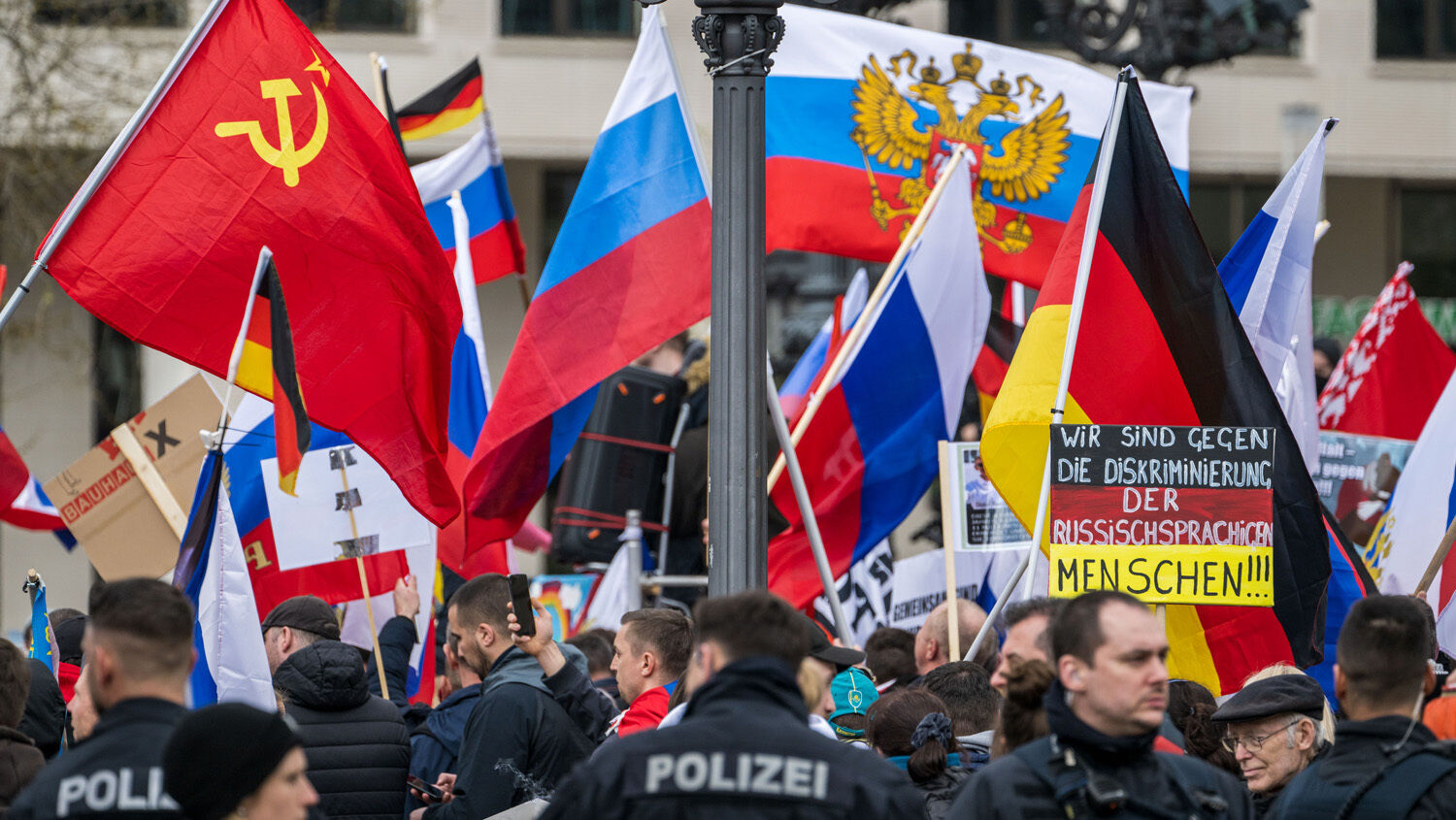
Why Are There So Many Russian Sympathizers in Germany?
Last week, it was reported that an employee of the German military conducted secret service activities on Russia’s behalf. Around the same time, Spiegel reported that a staffer for the Alternative für Deutschland (AfD) party was working with Moscow to slow weapons exports to Ukraine. The German government has been reluctant to enforce sanctions on Russia and is continually delaying weapons exports to Ukraine while its exports to nations in Russia’s periphery are flourishing.
In February 2022, Russia’s invasion of Ukraine was met with outrage from the media and governments of the West. Yet for the past 18 months, the German government has blocked meaningful sanctions against Russia, businesses have warned against cutting off Russia from trade, and the far right and the far left have united to promote “peace talks” with Russian President Vladimir Putin. It took someone from outside Germany to expose the cooperation between a member of the German secret service and Russia. Some businesses have continued to trade with Russia, leading to accusations they have Ukrainian blood on their hands.
Some argue that it would be best for Germany to remain neutral. Russia was a victim of German cruelty in World War ii, so it would be inappropriate to send weapons to Ukraine. Others argue Germany started two world wars and should not get involved in any more. Every option favors Russia.
German and Russian cooperation ran deep prior to the invasion of Ukraine. The Nord Stream pipelines were built despite criticism from the West. And despite Russia’s aggression against its neighbors and involvement in the Syrian civil war, business ties have flourished. It appears German businesses exported toxic chemicals to aid Russia’s chemical weapons program.
Cooperating with Russia is lucrative and has enabled the German economy to grow. Cheap gas allowed the left to pursue a “green” agenda. Spiegel Online reported last week that AfD leaders may have received funding for court cases aimed at stopping Germany from delivering weapons to Ukraine.
But there is far greater, more sinister reason why there is such great support for Russia in Germany.
Germany has a history of cooperating with Russia to the detriment of Eastern Europe (read “The Vicious Cycle: German-Russian Relations”). The Prophet Isaiah warned that we have to learn from history to understand the future: “Let them bring them forth, and shew us what shall happen: let them shew the former things, what they be, that we may consider them, and know the latter end of them; or declare us things for to come” (Isaiah 41:22).
Without a historical understanding of German-Russian relations we cannot understand the present. Of course individuals and nations can change, but German-Russian relations today prove that not much has changed.
The Bible specifically speaks of a prophetic alliance between Russia and Germany (read “The Great ‘Mart of Nations’”). Following Russia’s invasion of Georgia and Germany’s lack of response, Trumpet editor in chief Gerald Flurry wrote in 2008: “[D]id you know that Germany and Russia have probably already dealt with their most urgent differences? … I believe that Germany’s leaders may have already agreed to a deal with Russia, a modern Hitler-Stalin pact where Germany and Russia divide countries and assets between themselves. This agreement would allow each to turn its sights on other targets. Any such deal that may have been struck between Germany and Russia is a precursor to war!”
Fifteen years later, a hot war is being waged in Europe. Russia is getting what it wants, while Germany does nothing to stop it. The Bible reveals that this is just the beginning. Yet even in all this bad news, there is hope.
To learn more about the crucial history of German-Russian cooperation and to understand what it means for our future, read “The Vicious Cycle: German-Russian Relations.”
